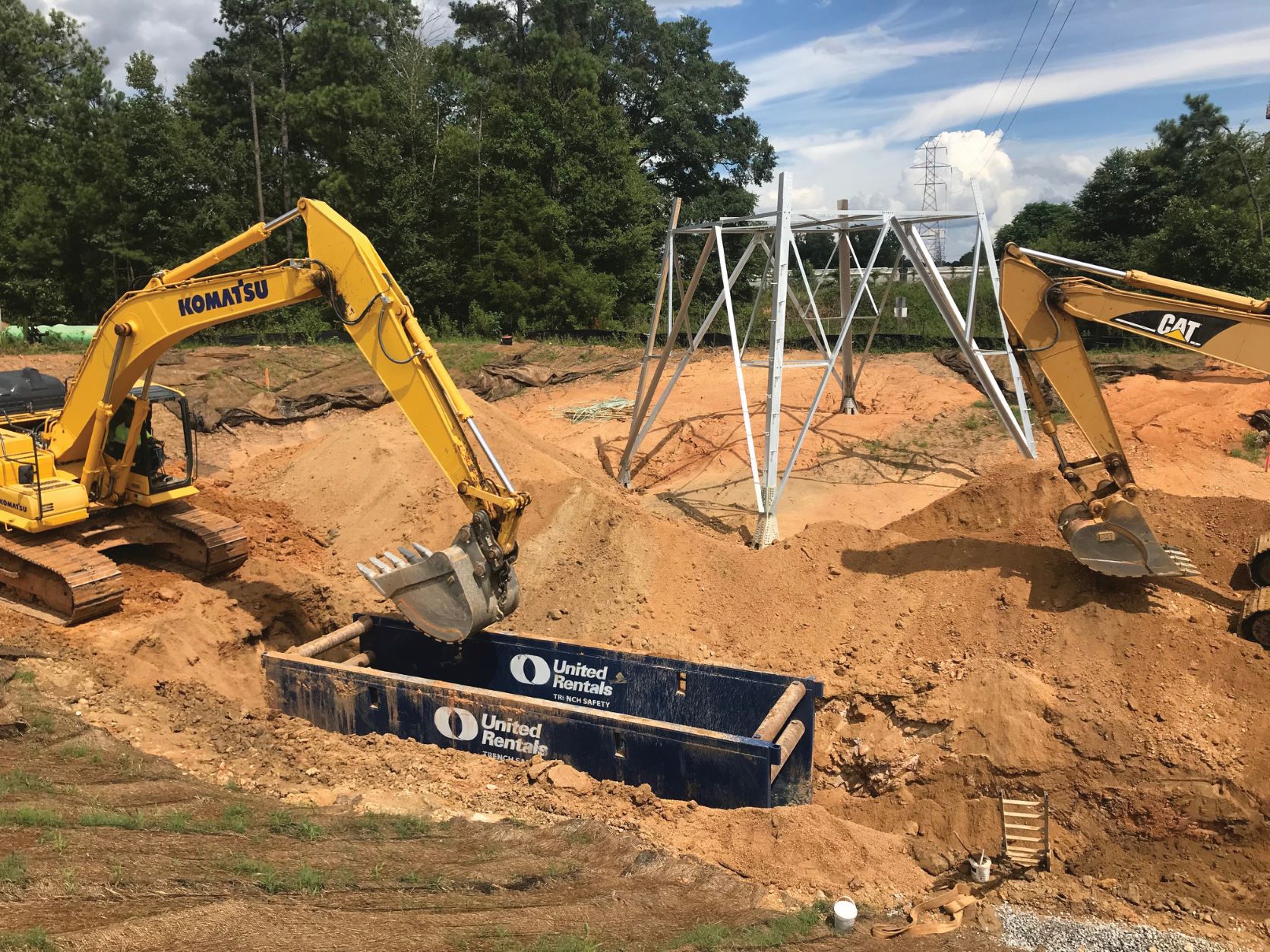Expensive infrastructure projects can become more feasible when cities carefully stack together numerous funding sources. Officials from state agencies that frequently handle grant awards and loans recently explained their programs at a meeting of the SC Community Development Association.

Greenwood Metropolitan District used SC Rural Infrastructure Authority grant funds
for a sewer trunk line to accommodate new industry. Photo: SC RIA.
Community Development Block Grants
South Carolina’s Community Development Block Grant program is administered through the SC Department of Commerce using U.S. Department of Housing and Urban Development funds. CDBG funding awards must always benefit low- and moderate-income individuals making 80% or less of the county’s median income.
Regional Grant Manager Stefanie Smith-Derwort explained the types of projects possible through CDBG. The community enrichment category can include police or fire substations, demolitions, brownfields cleanup or downtown streetscapes, among others. Grant opportunities are also available for neighborhood revitalization; water, sewer or drainage infrastructure; and certain special projects like preservation, energy conservation or parks.
Infrastructure grant applications have a spring deadline, with the deadline for other types of projects coming in the fall. Smith-Derwort encouraged those interested to review selection criteria and scoring rubrics at the program’s website, www.cdbgsc.com.
All CDBG projects required a 10% match of the total request, which she said could come from any source. It could be the U.S. Department of Agriculture funds, U.S. Economic Development Administration, Transportation Alternatives Program, SC Rural Infrastructural Authority, SC Department of Parks, Recreation & Tourism or private funds.
“As long as it doesn’t come from the South Carolina Department of Commerce, you can use it as a match,” she said.
SC Rural Infrastructure Authority programs
South Carolina’s State Revolving Fund Program, jointly administered by the SC Department of Health and Environmental Control and the SC Rural Infrastructure Authority, provides loans for building or repairing drinking water, wastewater and stormwater systems. Its benefits include below-market interest rates, fixed-rate financing and low closing costs.
RIA also handles basic infrastructure and economic infrastructure grants, which currently have $30 million available in two rounds of competitive funding each year. For basic infrastructure, this program focuses on projects that create regional solutions, addressing problems like consent orders and unsatisfactory ratings. Economic infrastructure funding, meanwhile, focuses on projects that can create jobs or build system capacity to support economic development. The application deadlines come in September and March, with the next deadline coming March 14, 2022.
SC RIA Senior Program Manager Liz Rosinksi noted that between the grants and loans in the 2021 fiscal year, the RIA programs provided $77 million for 65 projects statewide.
“We’re pretty proud of that widespread impact,” she said.
Case studies of projects can be found online.
Town of Carlisle case study
Angela Kirkpatrick, community development planner for the Catawba Regional Council of Governments, provided an explanation of multiple funding sources working together in the Town of Carlisle. The town asked for help upgrading its failing pump stations. This led to CDBG funds contributing to engineering costs and some construction costs while the SC RIA also helped with construction costs. Union County helped with environmental review and administrative costs, while the City of Union helped with cost estimates and construction oversight.
Carlisle soon faced another problem: the closure of a textile plant that had for decades provided wastewater services at no cost for the less than 300 wastewater users in the town. The collaborative effort to find solutions led to Union County hiring an engineer for a wastewater feasibility study. Instead of building a new plant, the town worked on a new sewage line to connect to the City of Union, with help from the CDBG, RIA and State Revolving Fund.
“You really have to be flexible, you have to persevere and just work with everybody,” Kirkpatrick said.
